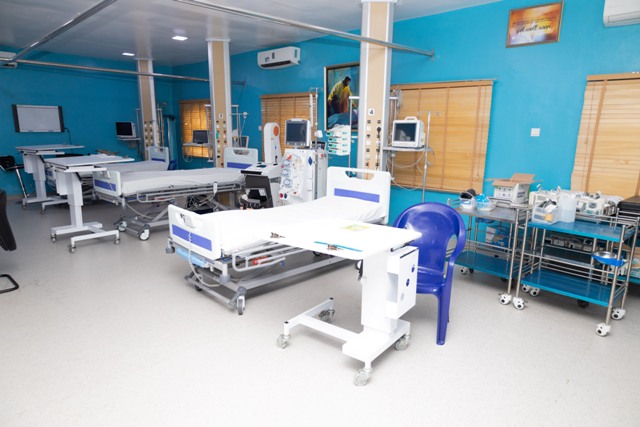
The ICU team provides comprehensive care to patients with a wide range of critical illnesses, including:
Medical Care
Medical care is provided on several wards throughout the hospital and includes disorders involving the respiratory, cardiovascular, renal-urinary neurologic, endocrine, gastrointestinal, haematologic, and/or musculoskeletal system. Emphasis is placed on patient care as well as safe and effective pain management.
Paediatric Care
Paediatric care is provided to children from infancy, including immunization/vaccination.
Surgical Services
The surgical services unit provides preoperative nursing care to patients of all ages on a scheduled basis Monday through Friday and on an emergency basis. The surgical patient population includes patients requiring general surgery, urology, ENT, and orthopaedic procedures etc.
Other Services
Other services include general nursing and ambulance nursing care.
What to expect in the ICU
If you or a loved one is admitted to the ICU, you can expect to receive the highest level of care from our team of experts. We will work closely with you and your family to keep you informed of your condition and treatment plan.
The ICU is a busy and complex environment, so it is important to be prepared. Here are some things to expect:
What to do in an emergency situation
If you or a loved one is experiencing a medical emergency, call 911 immediately. The emergency medical services (EMS) team will assess the patient’s condition and transport them to the nearest hospital.
If the patient is brought to BUTH, the EMS team will deliver them to the emergency department. Emergency department staff will evaluate the patient’s condition and determine if they need to be admitted to the ICU.
Additional information for people in emergency situations
If you are facing an emergency situation involving a loved one who needs critical care, it is important to remain calm and follow the instructions of the EMS team and hospital staff. Here are some additional tips:
Remember that the ICU team is there to help your loved one recover. They will do everything they can to provide the best possible care.

Babcock University Teaching Hospital is a private teaching hospital located in Ilishan-Remo, Ogun State, Nigeria.